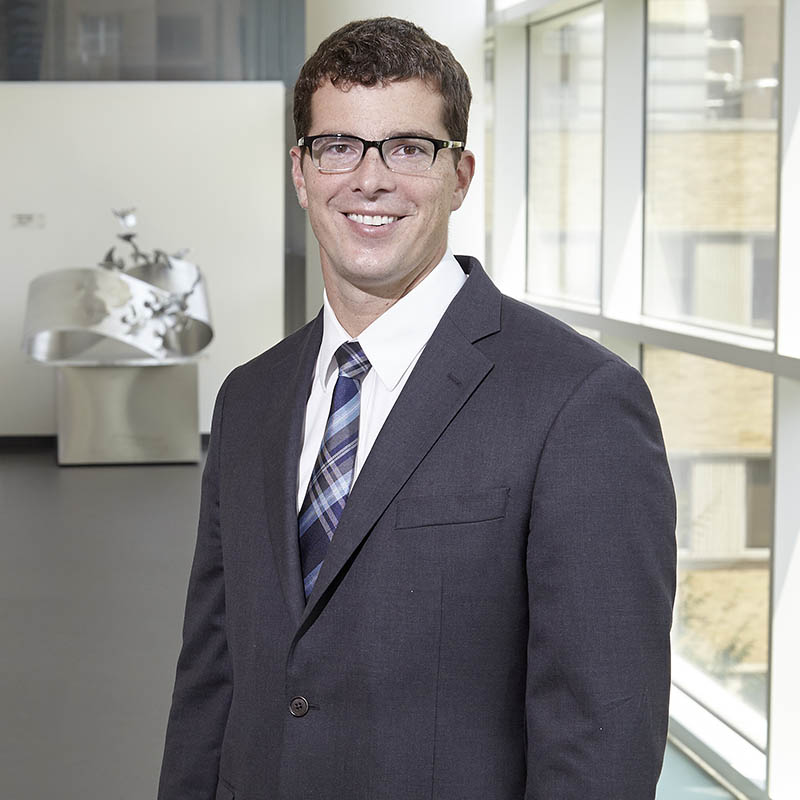Robbie Moon is the executive director of the Online Graduate Certificate in Business Analytics and teaches Analysis of Unstructured Data (MGT 8813) in this program.
1. Who has had the greatest influence on your career path?
This is a hard question to answer, not because I haven’t been influenced but because I’ve been influenced by many and it’s difficult to identify “the greatest.” Most practically, Jeff Hales, a former Scheller faculty member, is probably the reason I ended up here at Georgia Tech. He was a big reason I was interested in the position and was a great mentor to me when I was first getting started.
On the research side, I had a great advisor at FSU, Frank Heflin, and many great coauthors that shaped how I think about research questions. Finally, I completed an MBA at Louisiana State University (LSU) and was the teaching assistant for Professor Glenn Sumners. That TA position provided great exposure to academics. I helped with typical TA tasks, like grading, making tests, etc., but I also had the opportunity to teach a few class sessions. That experience planted the seed that a career in academia would be a good fit for me.
2. When did you start becoming interested in business analytics?
For the most part, “business analytics” is the same toolkit I use for my research, which focuses on the analysis of archival (or observational) data, so I’ve been interested in this toolkit since I started my Ph.D. program. When I started at Georgia Tech in 2018, I was asked if I’d like to develop an analytics course, which I did. Teaching analytics has been a great way for me to synthesize my research and teaching.
3. Which issue in this field are you most passionate about?
I’m most passionate about natural language processing (NLP), and particularly how it intersects with machine learning. I view written and spoken language as a form of data, and there is rich information to be extracted from this data with the right tools. These tools are already very powerful and will likely continue to improve over the next several years.
4. What is the biggest lesson that you’ve learned since you started teaching?
I’ve learned that every student learns a little differently, and this goes for undergraduate accounting students, MBA students, or students in my analytics classes. Over the years, I’ve found that challenging students to figure out answers to tough problems on their own leads to better mastery than me simply lecturing on the material. My role as an instructor is to ask the right questions to help each student find the path to success.
5. What advice do you have for your students about being successful in this program?
I am going to define success based in terms of both performance and benefits from the program. With this definition, I can think of three traits or strategies. First, this program requires students to be very self-motivated. The asynchronous nature of the classes allows great flexibility, but it’s going to be important that students maintain a good pace so as not to be forced to learn several modules of material in a short period of time. Second, while the program provides a lot of autonomy, I think students that take advantage of opportunities to interact, either with the instructional team or fellow students, will be most satisfied.
Finally, I encourage students to constantly think about how the material relates to or will be useful for their own professional experience. As an example, my class will likely cover an approach for fine-tuning a machine-learning model to classify text on the basis of financial sentiment. Not all students will necessarily be interested in this specific application, but there are almost certainly other classification tasks that will be of interest, and the approach would be very similar. Making that connection in real-time will facilitate recall later when the tool could be used.
6. Tell us something about yourself we wouldn’t otherwise know or guess.
I have two things I usually find people are surprised to learn. First, I was a college swimmer at LSU, which indirectly led me to where I am now. I studied electrical engineering for my undergraduate degree but decided I wanted to have some more time as a college student without the commitment of athletics, so I went directly into LSU’s MBA program. This graduate degree led me to public accounting, and eventually back to academia (but in business instead of some other field).
Second, I have five kids, ranging in age from 9 to 1. My weekends are filled with kids’ sports and birthday parties, but I wouldn’t have it any other way

